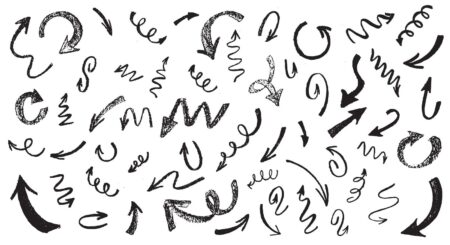Traditionally, large stocks were considered more international, and small stocks more domestic. At a time of trade hostilities, you’d think that small stocks would be doing well.
Alas, not. This year through April 18, big stocks (as measured by the Standard & Poor’s 500 Total Return Index) are down 9.8%, while small ones (gauged by the Russell 2000 Index) have fallen 15.3%.
This is partly because the small fry are more volatile, and partly because in times of stress, people flee to the relative safety of big stocks.
Nonetheless, small stocks have advantages. They are less combed over by Wall Street analysts, and offer a better chance of big gains if you choose astutely.
Here are five little stocks that look promising to me.
Apogee
Apogee Enterprises Inc. (APOG), based in Minneapolis, Minnesota, makes architectural glass and framing, especially for skyscrapers. The stock has been a miserable investment or a great one, depending on your timing. It’s down 36% so far this year but up 150% over the past five years.
Right now, Apogee stock is out of favor, partly because commercial real estate is suffering in a post-Covid world. It sells for about 10 times the past four quarters’ earnings. Over the past decade, that multiple has usually been more like 17.
Bank7
Based in Oklahoma City, Oklahoma, Bank7 Corp. (BSVN) has compiled a strong record of profitability. I like to see banks earn at least 1.0% on assets. Bank7 has done that nine years in a row, including six years where the figure was over 2.0%.
Unlike most banks, Bank7 has no corporate debt. It has increased its earnings by 18% a year over the past five years. The stock sells for less than eight times recent earnings.
Legacy Housing
A small homebuilder based in Bedford, Texas, Legacy Housing Corp. (LEGH) specializes in very small homes and manufactured homes. If the economy slows down, as seems possible this year, I would guess that the low end of the housing market might be a good place to be.
Mortgage rates remain higher than any homebuilder would prefer. But Legacy has very little debt, and so can probably make it through tough times if necessary. The stock sells for 10 times earnings and 1.2 times book value (corporate net worth per share).
Monarch Cement
Over the past decade, Monarch Cement Co. (MCEM) has increased its annual profits an average of 24% a year – coincidentally, the same as Alphabet Inc., the parent of Google. The stock has done extremely well, up 650% in the past ten years. It’s up 7% year-to-date, defying the general downtrend.
Monarch stock is fairly inexpensive, selling for 13 times recent earnings. And the company is debt-free, a quality I love and rarely see these days. Based in Humboldt, Kansas, the company has little or no Wall Street coverage.
Steel Partners
Though its name might fool you, Steel Partners Holdings LP (SPLP) of New York City is not a steel maker. It’s more of a small conglomerate. It makes building materials and tubing, owns WebBank in Utah, and runs a youth sports business in New Jersey.
Steel Partners had four losses in the six years through 2019, but has been nicely profitable since, with a return on equity of 25% last year. Since the company is structured as a limited partnership, owning this stock may complicate your tax return.
The Record
Since the beginning of 2000, I’ve written 27 columns recommending small-cap stocks. The average one-year return on my recommendations has been 14.1%. That beats both the Standard & Poor’s 500 Total Return Index at 8.5% and the Russell 2000 Index (with dividends reinvested) at 9.8%.
My picks in this series have been profitable 19 times out of 27. They have beaten the large-cap index 16 times and the small-cap index 15 times.
Bear in mind that my column results are hypothetical and shouldn’t be confused with results I obtain for clients. Also, past performance doesn’t predict the future.
I’d rather not tell you how last year’s picks did, but I reluctantly will. All five of my picks from a year ago are down significantly, with an average loss of 40.7%. By comparison the S&P was up 8.5% and the Russell 2000 was down 3.4%.
While all my picks did badly, the worst was Quanex Building Products Corp. (NX), down 52%. The least disastrous was John B. Sanfilippo & Son Inc. (JBSS) down 29%.
That shows the dangers small-caps can pose. But the long-term results show the benefits.
Disclosure: I own Alphabet personally and for almost all of my clients.
Read the full article here
















